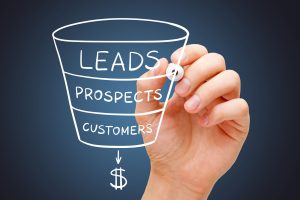Search engine optimization (SEO) is critical for every digital company’s success. All webmasters must grasp what SEO is, how it operates, and how much traffic it can create for various websites. SEO has two primary objectives. The first is to assist you in understanding what users are looking for online so that you can develop supreme-quality content to meet the user’s purpose. The second goal is to assist you in creating a website that search engines can locate, index, and comprehend. SEO can be both On-page and Off-page, here we will discuss what is On-page SEO.
What is On-Page SEO?
On-page SEO is a fundamental aspect of digital marketing that focuses on optimizing elements within a website to improve its position in the search engine results pages (SERPs). This process involves a detailed and strategic approach to tweaking the website’s content and HTML source code to make it more attractive and understandable to search engines.
One of the primary goals of on-page SEO is to help search engines interpret the content of pages accurately and, in turn, provide users with the most relevant and high-quality results. Key elements of on-page SEO include optimizing title tags, content, internal links, and URLs. Each of these components plays a crucial role in helping search engines understand the subject matter of the content and determine how well it should rank. The use of relevant keywords in these areas, while ensuring natural integration and readability, is vital. Moreover, on-page SEO is not just about keyword placement; it’s also about ensuring the content is comprehensive, authoritative, and provides value to the user.
Advanced Techniques in On-Page SEO
Beyond the basics, on-page SEO also delves into more advanced techniques aimed at enhancing user experience and website performance. This includes optimizing website speed, ensuring mobile-friendliness, and implementing structured data (schema markup) to help search engines understand the context of the content. Website speed is a critical factor, as slow-loading pages can lead to higher bounce rates and lower user engagement, negatively impacting search rankings.
Mobile-friendliness is another crucial aspect, especially considering the increasing prevalence of mobile searches. Websites optimized for mobile devices tend to rank better in search engine results. Additionally, structured data plays a significant role in on-page SEO by providing explicit clues about the meaning of a page’s content. This can lead to enhanced visibility in search results through rich snippets, which can improve click-through rates. Furthermore, on-page SEO also involves ensuring high-quality content that addresses the users’ search intent, providing a seamless and intuitive navigation experience, and maintaining a natural and engaging tone throughout the website’s content.
These elements collectively contribute to a robust on-page SEO strategy, driving organic traffic and improving the overall effectiveness of a website in search engine rankings.
Understanding the Relationship Between Landing Pages and On-Page SEO
In the digital marketing landscape, landing pages and on-page SEO are two critical components that work synergistically to enhance online visibility and user engagement. A landing page is a standalone web page, distinct from your main website, created specifically for a marketing or advertising campaign. It’s where a visitor “lands” after clicking on a link in an email, ads from Google, Bing, social media, or similar places on the web. The primary goal of a landing page is to convert visitors into leads or customers, focusing on a single objective or call to action (CTA). Here’s how on-page SEO is crucial for landing pages:
- Keyword Optimization: Effective landing pages are often optimized for specific keywords. This includes using relevant keywords in the content, the title tag, the URL, and the meta description. By doing so, these pages are more likely to appear in search results when potential customers search for those terms.
- Content Relevance and Quality: High-quality, relevant content is the cornerstone of both landing pages and on-page SEO. The content on a landing page must align with the user’s search intent and provide value, which helps in improving the page’s search rankings and conversion rates.
- User Experience (UX): On-page SEO isn’t just about keywords; it’s also about providing a great user experience. This includes fast loading times, mobile responsiveness, and easy navigation – all of which are essential for keeping visitors engaged on your landing page.
- Meta Tags and Descriptions: Crafting compelling meta titles and descriptions for your landing pages can improve their click-through rates (CTRs) from search engine results pages (SERPs). These tags should include targeted keywords and a clear value proposition.
- Image Optimization: Images on landing pages should be optimized for both speed and search engines. This includes using alt tags with relevant keywords, which helps in improving the page’s SEO while making it more accessible.
- Internal Linking: Including internal links on your landing page to other relevant pages on your site can enhance SEO. It helps in distributing page authority throughout your website and can improve the overall relevancy of your site’s content.
- Social Sharing Elements: Integrating social sharing buttons on landing pages can amplify your content’s reach and can indirectly boost your page’s visibility and credibility.
What Can SEO Do For You
Google’s algorithm is continually updated to effectively comprehend a searcher’s purpose and produce search results that fit that user’s demands. Your webpage should evolve in tandem with Google’s algorithm. Your webpage and its contents must be optimized to the newest methods employed by firms such as Bing and Google, including what is visible to users (i.e., content, images, media) and accessible to search engines (i.e., metadata, HTML). This allows search engines to comprehend your website and determine how to rank it. It is critical to optimize a website’s on-page SEO, whether large or small. SEO is among the most prominent digital marketing tactics, and it is still quite popular due to its consistent return on investment.
In fact, with its minimal cost and long-lasting benefits that can enable websites to thrive and bring in passive visitors for ages, on-page SEO gives the best ROI of almost any digital marketing tactic. As much as 50% of all web traffic originates from search engines such as Google or Bing, which implies that search traffic accounts for over 40% of all digital revenue.
Here’s something else to consider: The top first search on Google receives more than 32% of keyword traffic, while the first page of search results receives up to 91.5 % of traffic. This is the reason why on-page SEO is essential. Because without it, your website may skip out on possibilities to rank for web searches related to your business. Competitors may drag your site down search results if you do not have an SEO strategy in place. This is a key reason why many companies use an SEO agency because the universe of search engine marketing has risen to be worth $79 billion.
Why Partner With Evolved Designs
There are many eCommerce store owners who already have e-stores up and running but just aren’t making the money they feel that they should. As e-commerce specialists, Evolved Designs can take an existing eStore and overhaul it to give you better traffic through improved SEO, higher conversions via better design or more targeted keywords or by looking at customer experience or simply moving the ecommerce site to another platform. e-commerce marketing agencies must be in tune with industry trends so your e -commerce consulting partner not only knows what works now but has ideas about what will work tomorrow in the future, as your business grows.
We help with implementing online best practices, payments, checkout, coupons, conversion optimization, payments, shipping, returns, SEO content management, and many more.
For more information on how Evolved Designs can help your business, please email us at support@evolveddesigns.net or call (817) 918-0436 for a free consultation with an eCommerce marketing agency today!


